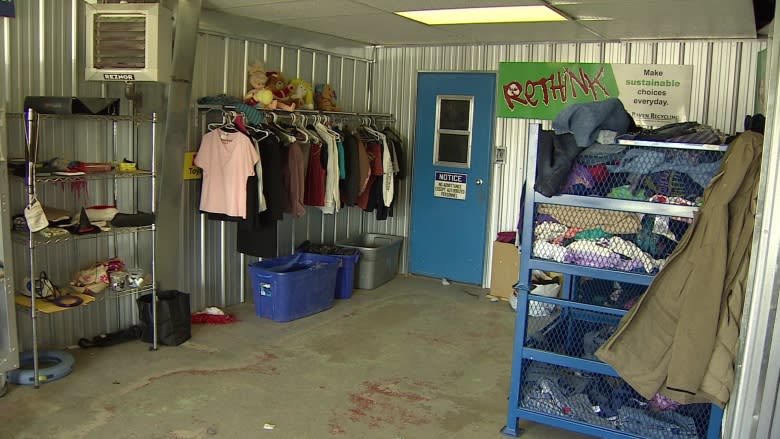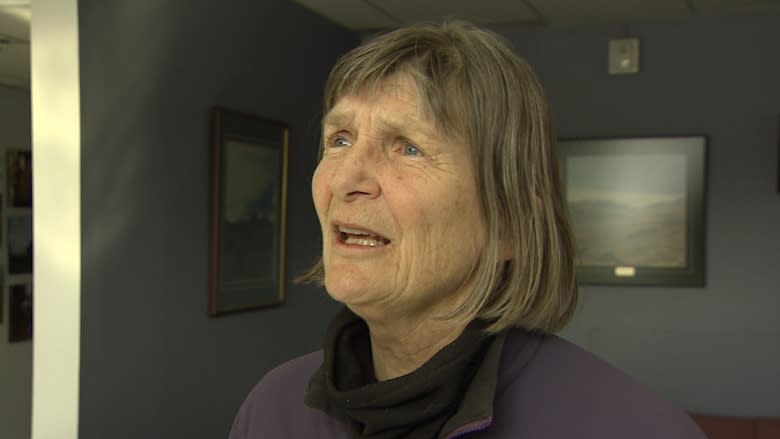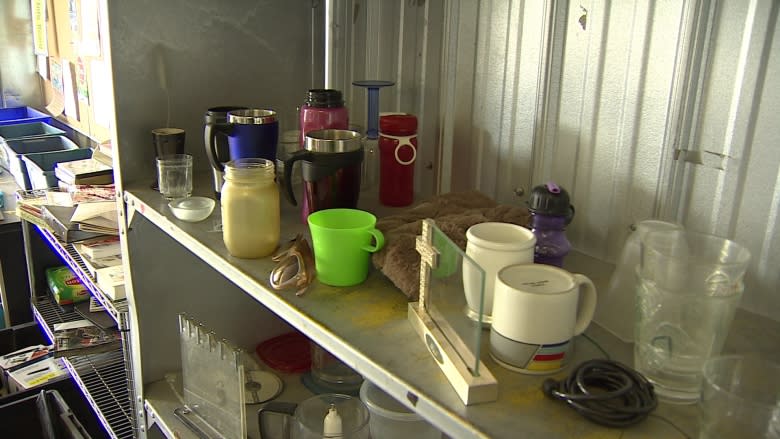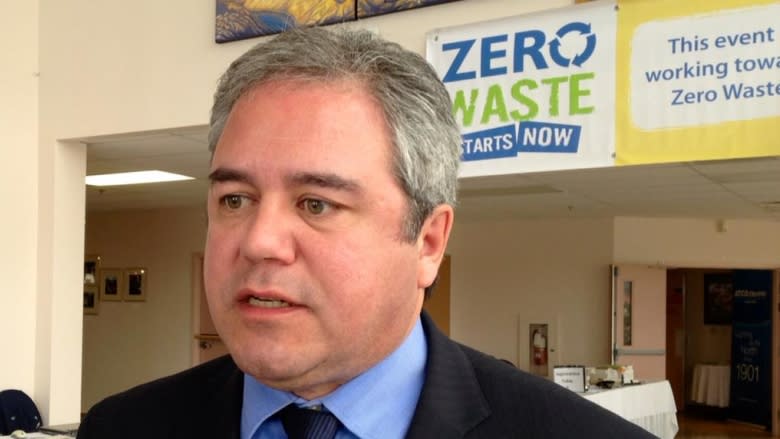Still too much junk: Whitehorse loses another 're-use' facility
It might be a good summer for yard sales around Whitehorse.
The city is about to lose yet another facility where people bring unwanted goods — Raven Recycling's "free store" closes on Monday.
"We can't really manage," said Raven's executive director Joy Snyder. "We are getting a lot of stuff coming in. Just high volumes of materials, and we have a small space."
The "store" is attached to the depot where Raven collects bottles, cans and other recyclables. People drop off unwanted household items — dishes, books, toys, clothes — for others to come and take.
Snyder says two staff members spend about four hours each morning cleaning the area and sorting through the stuff that's been dropped off. A lot of it is deemed useless.
"Some of it goes for recycling, and other stuff heads off to the landfill," Snyder said.
The depot will still accept clothes and textiles, however (along with the regular recyclables). Clothes will be baled up and shipped south for recycling.
Raven's decision comes just a month after the Salvation Army closed its thrift store in Whitehorse, and a year after the City of Whitehorse closed its own "reuse store" at the landfill.
With each closure, the pressure increased on the remaining facilities as more and more donated goods piled up.
"We've got no other source now," said Sharon Hanley, who regularly donated items to Raven.
"If you have no place to take your used stuff, it can create another monster where you are dumping it as garbage — which is just kind of a shame."
'Too big for one government,' mayor says
Whitehorse mayor Dan Curtis said he's disappointed but not surprised by Raven's decision.
"I mean, the model obviously isn't one that's been proven to work," he said.
The disappearing re-use facilities represent a step backward for the city and its goal of being waste-free by 2040. But Curtis says citizens need to step up, and stop producing so much junk.
"This is way too big for one government, or one city, or one individual or one business," he said.
Yukoners, he said, have to "kind of look deep, and see when they're purchasing stuff, do they really need that."
Bryna Cable, the city's environmental coordinator, agrees. She's also counting on someone — not the city — to come up with new ideas to facilitate re-use of unwanted goods.
One example, she says, is the weekly summer flea market that begins this weekend in Whitehorse.
"The city can't... you know, if we were to go out and try to create something all on our own, we might be squashing that opportunity that some of those entrepreneurial people might have."





